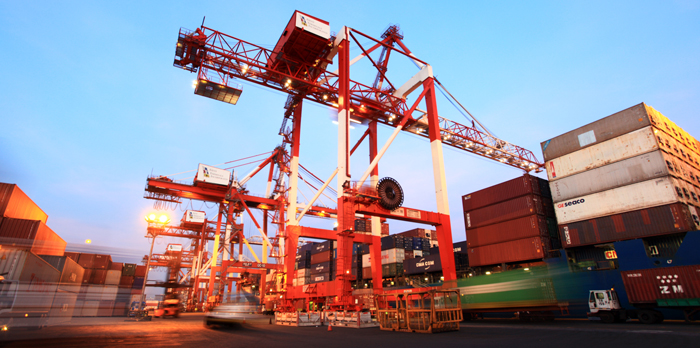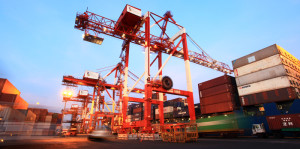
Trucking holiday ends; Customs reports P490M loss
The Manila truck ban policy is causing much confusion, with many transport stakeholders still not exactly clear when trucks can ply Manila streets. This even as truckers ended on Thursday (Feb 27) their trucking holiday, agreeing to comply for three days with the city government’s daytime truck ban.

The Confederation of Truckers Association of the Philippines (CTAP) and the Integrated North Harbor Truckers Association announced on the evening of Feb. 26 they would follow the 10am to 5pm window when trucks with loaded containers can use Manila city streets, to see whether the modified truck ban is feasible.
The new schedule is two hours longer than the 10am to 3pm window under the city ordinance which took effect on Feb 24. The latter was in turn a concession to the original decree which allowed truck operations only from 9pm to 5am.
At press time, CTAP was still seeking clarification and asking for a black-and-white copy of the city resolution granting the 10am to 5pm window.
Adding to the confusion was a Feb 26 television report which said Manila Mayor Joseph Estrada agreed to exempt altogether trucks loaded with deliveries from the ban from Mondays to Saturdays as long as they use designated routes.
Regardless of what schedule one adheres to, trucks carrying empty containers are banned from operating during the daytime, and only allowed to use Manila streets from 9pm to 5am.
Effects
In a statement on Thursday, the Makati Business Club called for a “fair solution at the soonest possible time” of the issue of the expanded Manila truck ban, noting “appropriate balance” is needed “between relieving congestion and facilitating the free flow of goods through the city’s streets.”
It said “further delay in resolving this issue will result in adverse effects to the country’s economic performance.”
The long-term solution to the congestion problem, MBC said, is the provision of adequate infrastructure. It called on the government to facilitate the “immediate construction of much-needed mass transportation and road projects. Government should also provide the necessary infrastructure and incentives to increase cargo traffic in and economic activity around the ports of Subic and Batangas to decongest the port of Manila.”
For its part, the Semiconductor and Electronics Industries in the Philippines Foundation Inc. in a statement on Thursday said Manila’s new truck ban policy could lead to line shutdown if materials don’t arrive on time; higher storage costs; and loss of sales with unmet delivery.
Shipping lines have felt the effects of the non-delivery of cargoes at the ports as the truck holiday was under way.
Daniel Ventanilla, general manager of NYK Fil Japan Shipping, told PortCalls one of its ships left behind more than a dozen containers in Manila on Feb. 25.
COSCO Philippines general manager Virgilio Angeles also told PortCalls one vessel that arrived on Feb. 26 had 50% less export loadings.
BOC losses, longer port operations
Meanwhile, the trucking holiday has led to reduced collections by the Bureau of Customs (BOC), with total losses estimated at P489.98 million — P217.39 million at the Manila International Container Port (MICP) and P272.59 million at the Port of Manila (POM) — three days after the hauling stoppage began Feb 24.
On average, MICP collects P359.76 million daily and the POM, P252.95 million.
In order to help stakeholders affected by the trucking holiday, the customs bureau said it was to extend its operations at the two ports.
Customs offices at the POM and MICP were to open until 9pm on Feb. 27 and 28; and from 9am to 5pm on March 1.
It may further extend operations until Sunday, depending on the volume of containers that need to be released, the agency said.
The bureau said it would deploy additional examiners and stand-by personnel from the X-Ray Inspection unit to expedite cargo release. ––Roumina M. Pablo




